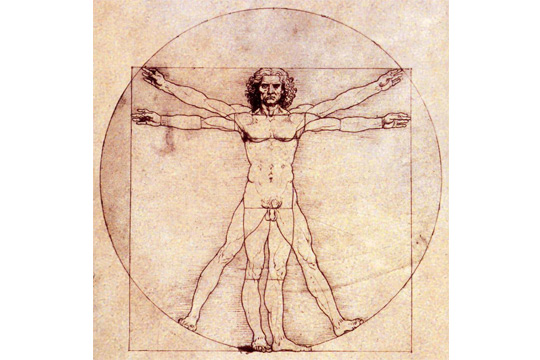
Reducing Food Waste in Foodservice
October 16, 2018 by Doreen Garelick, Dietetic Intern
Our intern Doreen attended a food waste summit for restaurants and compiled these tips to help food service operators redirect…
Nutrition 101
July 23, 2013

Photo: Flickr
Jason Lau, R.D., and Jennifer Maeng, Dietetic Intern, suggest how certain foods can prevent diverticulosis and – by association -- diverticulitis.
Diverticulosis occurs when pouches form in the wall of the colon. These pouches -- called diverticula -- are formed when the muscles of the colon squeeze against a hard stool. The pressure created in the colon by the digestive musculature pushes the lining of the colon outward in areas where there are no muscles. Over time, the outward pressure on the colon lining causes permanent pouches to form in between the colon muscles.
Once these pouches are formed, they can become inflamed. This condition is known as diverticulitis. Common symptoms of diverticulitis include, but are not limited to:
• Sudden, severe pain in the lower abdomen
• Fever
• Nausea and vomiting
• Adjustment in bowel habits
In the past, it was recommended that people with diverticulitis avoid hard-to-digest foods such as nuts, corn and seeds. These foods were believed to me most likely to get stuck in the pouches and lead to inflammation. However, there is now evidence to suggest that the aforementioned foods – often high in fiber – may actually help to prevent diverticulosis from occurring in the first place.
Fiber
Consuming a high-fiber diet is thought to reduce the risk of developing pouches in the colon and minimize symptoms for those who already have diverticulitis. Don’t worry too much about what type of fiber to get, but instead focus on eating a balanced diet which will provide a variety of soluble and insoluble fibers and all of their related health benefits. Learn more about the role of fiber in the human diet.
Water
Drinking water is a great way to help the fiber you consumed function within your body. Water helps move high-fiber foods through the digestive system smoothly and may help reduce flatulence that some people may experience when they increase fiber consumption.
Probiotics
Probiotics are known as the “friendly” bacteria that are found in our digestive system which may help reduce inflammation in the bowel for diverticulitis patients. Some sufferers might be prescribed antibiotics for their condition and -- by consuming them -- can help reestablish the healthy balance of bacteria in the gut. Find out more about natural sources of probiotics.

October 16, 2018 by Doreen Garelick, Dietetic Intern
Our intern Doreen attended a food waste summit for restaurants and compiled these tips to help food service operators redirect food waste from landfills.
Nutrition 101

Nutrition 101
September 26, 2018 by Doreen Garelick, Dietetic Intern
Ever notice headlines about rapid weightloss? Dietetic Intern Doreen Garelick looks deeper into a recent eye-catching headline to see if there's any truth behind it.
Connect
 Follow us on Twitter
Follow us on Twitter Friend us on Facebook
Friend us on Facebook Follow us on Pinterest
Follow us on Pinterest Follow us on Instagram
Follow us on Instagram Read our Blog
Read our Blog Watch videos on YouTube
Watch videos on YouTube Watch videos on Vimeo
Watch videos on Vimeo Connect with us on Linkedin
Connect with us on Linkedin Find us on Foursquare
Find us on Foursquare
Tweets by @SPEcertifiedBlog Search
Categories
SPE Certified Newsletter
Sign up for news on the latest SPE-certified venues, events and SPE updates.
We will never share your personal information with a third party.